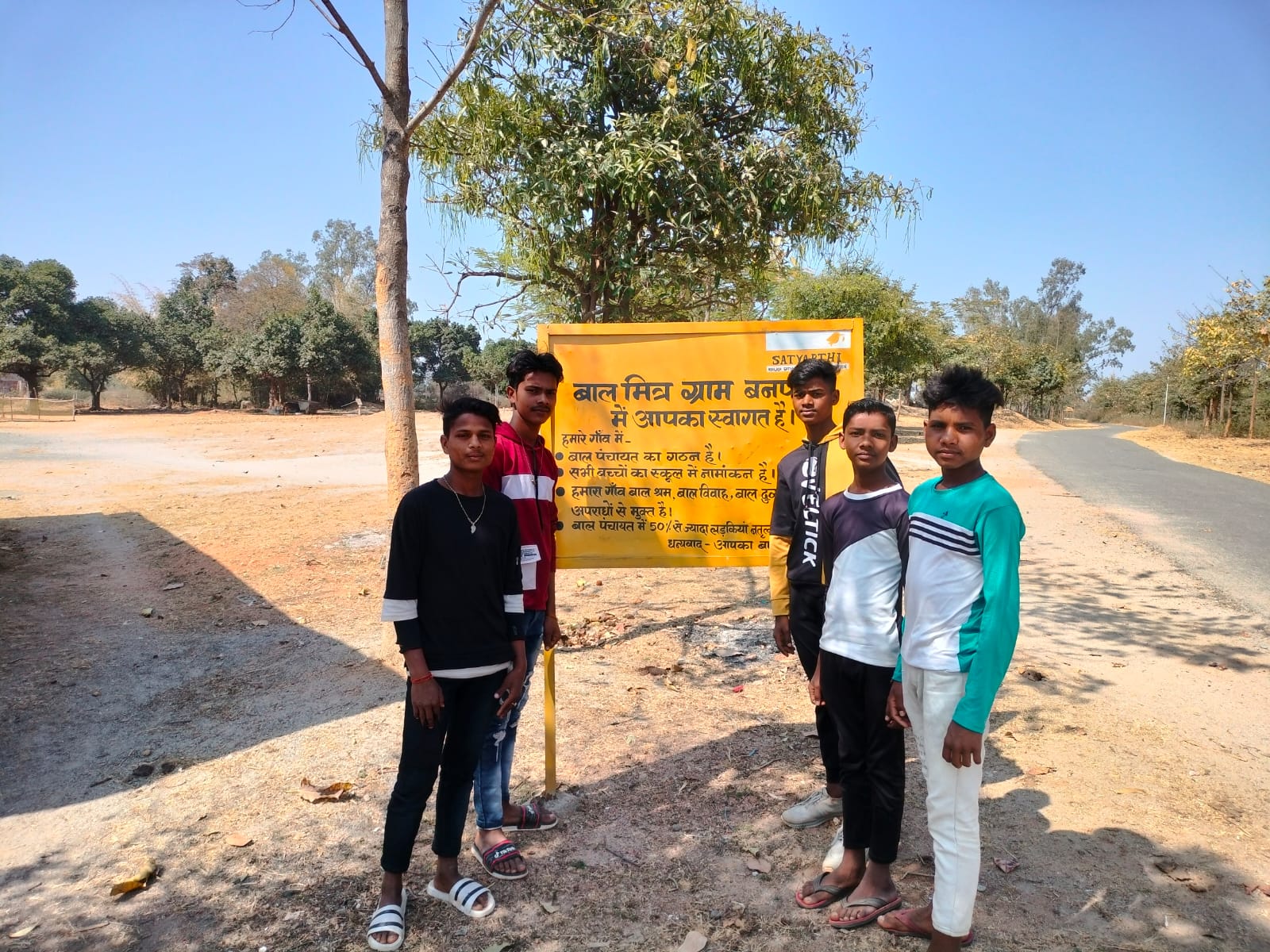Date: 10th August, 2023
Mica is a mineral which is used vastly in electrical products, automobiles, paint, toothpaste and cosmetics. Koderma and Giridih districts of Jharkhand and Nawada and Jamui districts of Bihar are richly endowed with good quality mica deposits. Bal Mitra Gram (BMG)TM or Child Friendly Village (CFV)TM model of Kailash Satyarthi Children’s Foundation (KSCF) is essentially a 3-5 years preventive and a curative strategy ai med at creating a child friendly world, where every child is free from exploitation, receives education, recreation and health facilities, their voices are heard and participation is ensured in an environment of friendliness, rights and dignity in the community. Since 2005, KSCF has been working in the mica villages of Bihar and Jharkhand. The programme’s primary goal is to contribute to making mica mining in Jharkhand and Bihar child-labour-free, ensure children’s access to education, form Bal Panchayats (Children’s Council) to take up their issues of protection, health and education and ensure its institutionalisation through recognition of the Gram Panchayat (Village Council).
med at creating a child friendly world, where every child is free from exploitation, receives education, recreation and health facilities, their voices are heard and participation is ensured in an environment of friendliness, rights and dignity in the community. Since 2005, KSCF has been working in the mica villages of Bihar and Jharkhand. The programme’s primary goal is to contribute to making mica mining in Jharkhand and Bihar child-labour-free, ensure children’s access to education, form Bal Panchayats (Children’s Council) to take up their issues of protection, health and education and ensure its institutionalisation through recognition of the Gram Panchayat (Village Council).
Since 2005, KSCF has been working in the mica villages of Bihar and Jharkhand. The programme’s primary goal is to contribute to making mica mining in Jharkhand and Bihar child-labour-free, ensure children’s access to education, form Bal Panchayats (Children’s Council) to take up their issues of protection, health and education and ensure its institutionalisation through recognition of the Gram Panchayat (Village Council).
SIGMA Foundation was assigned to do the impact documentation of the Bal Mitra Gram programme in mica mining villages of Jharkhand and Bihar. The main objective of the study was to examine the extent to which the intervention of “Bal Mitra Gram” program has brought the meaningful results as per the envisaged theory of change for the children, their parents and associated communities. The study was majorly based on primary data following a qualitative research method approach. 16 FGDs, 40 IDIs were conducted and 5 case studies were recorded from across Koderma and Giridih in Jharkhand, Nawada and Jamui (as comparison districts) in Bihar.
